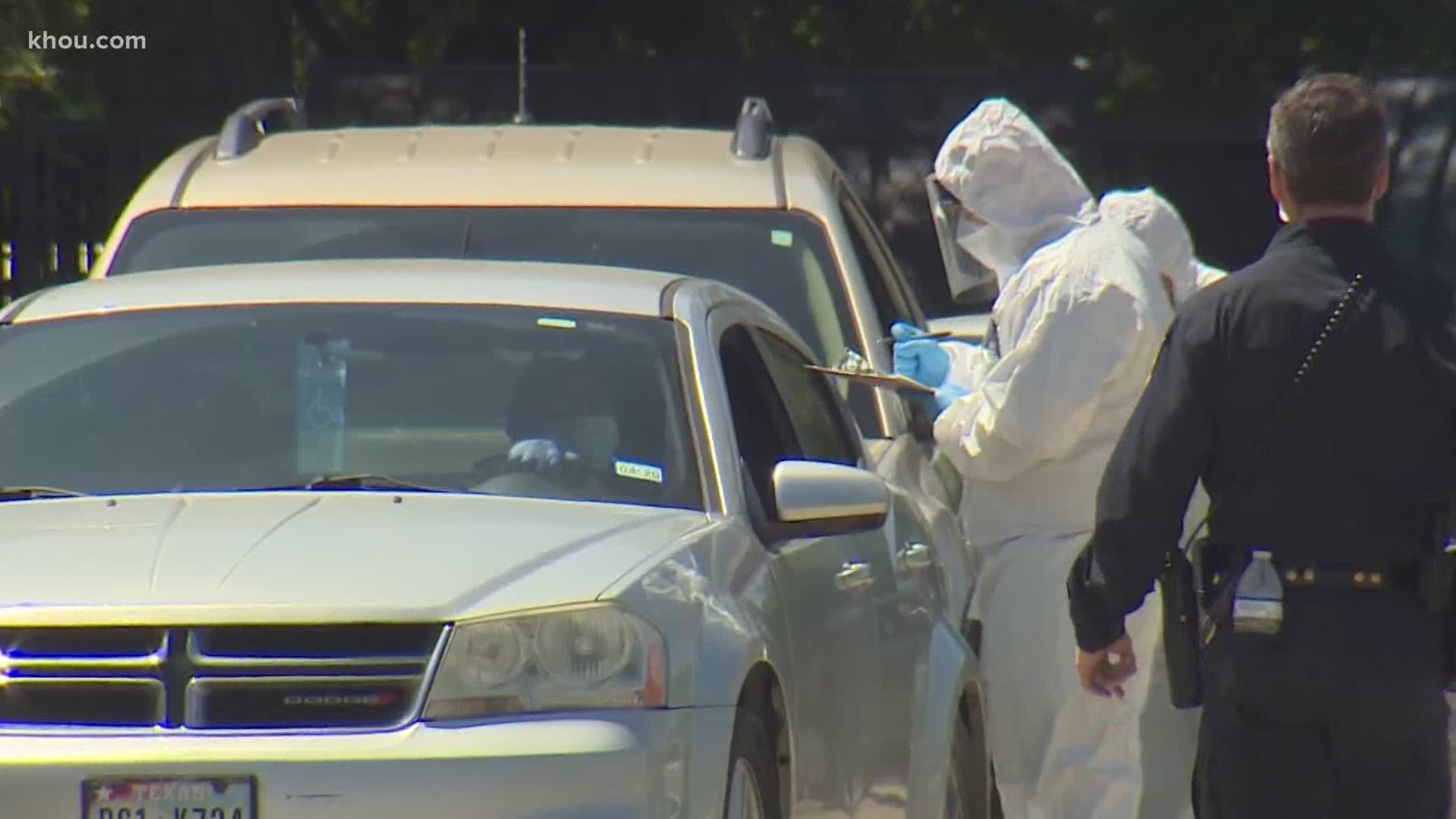HOUSTON, Texas — Thousands flooded re-opened beaches this past weekend or dined in limited capacity at restaurants.
At the same time, more than 2,000 new COVID-19 cases were diagnosed.
That's a two-day record for the state.
Saturday alone was the second biggest single day gain since the pandemic began with 1,293 new cases, according to state health officials.
"Many communities are now getting testing efforts up,” said Dr. Sherri Onyiego with Harris County Public Health. "And, as you test more, the likelihood of getting additional cases will inevitably come as well.”
Gov. Greg Abbott announced Tuesday that more than half of the testing in Texas during the entire COVID-19 crisis has occurred over just the last two weeks.
Onyiego believes more widespread testing sent the number of new cases up.
Many experts suggest increased mingling may eventually do the same.
"There’s some gatherings where people may be congregating together, some gatherings where individuals aren’t wearing face masks," said Onyiego. "And we certainly want to ensure that, you know, we don’t let up off the gas, that we still have work ahead of us.”
Seven additional COVID-19-related deaths were reported Monday in Houston and Harris County along with more than 120 new cases.
It’s encouraging that nearly 1,800 patients have recovered in the county.
But Onyiego believes many of us remain at risk.
"We all have a part to play in this by doing the things we need to do to keep, to keep these numbers low,” said Onyiego.
Here's more information on HCPH's testing efforts.
Coronavirus symptoms
The symptoms of coronavirus can be similar to the flu or a bad cold. Symptoms include a fever, cough and shortness of breath, according to the Centers for Disease Control. Some patients also have nausea, headaches and stomach issues.
Most healthy people will have mild symptoms. A study of more than 72,000 patients by the Centers for Disease Control in China showed 80 percent of the cases there were mild.
But infections can cause pneumonia, severe acute respiratory syndrome, kidney failure and even death, according to the World Health Organization. Older people with underlying health conditions are most at risk for becoming seriously ill. However, U.S. experts are seeing a significant number of younger people being hospitalized, including some in ICU.
The CDC believes symptoms may appear anywhere from two to 14 days after being exposed.
Human coronaviruses are usually spread through...
- The air by coughing or sneezing
- Close personal contact, such as touching or shaking hands
- Touching an object or surface with the virus on it, then touching your mouth, nose or eyes before washing your hands.
Help stop the spread of coronavirus
- Stay home when you are sick.
- Eat and sleep separately from your family members
- Use different utensils and dishes
- Cover your cough or sneeze with your arm, not your hand.
- If you use a tissue, throw it in the trash.
- Follow social distancing
Lower your risk
- Wash your hands often with soap and water for at least 20 seconds. If soap and water are not available, use an alcohol-based hand sanitizer.
- Avoid touching your eyes, nose, and mouth with unwashed hands.
- Avoid close contact with people who are sick.
- Clean and disinfect frequently touched objects and surfaces.
- If you are 60 or over and have an underlying health condition such as cardiovascular disease, diabetes or respiratory illnesses like asthma or COPD, the World Health Organization advises you to try to avoid crowds or places where you might interact with people who are sick.
Get complete coverage of the coronavirus by texting 'FACTS' to 713-526-1111.

